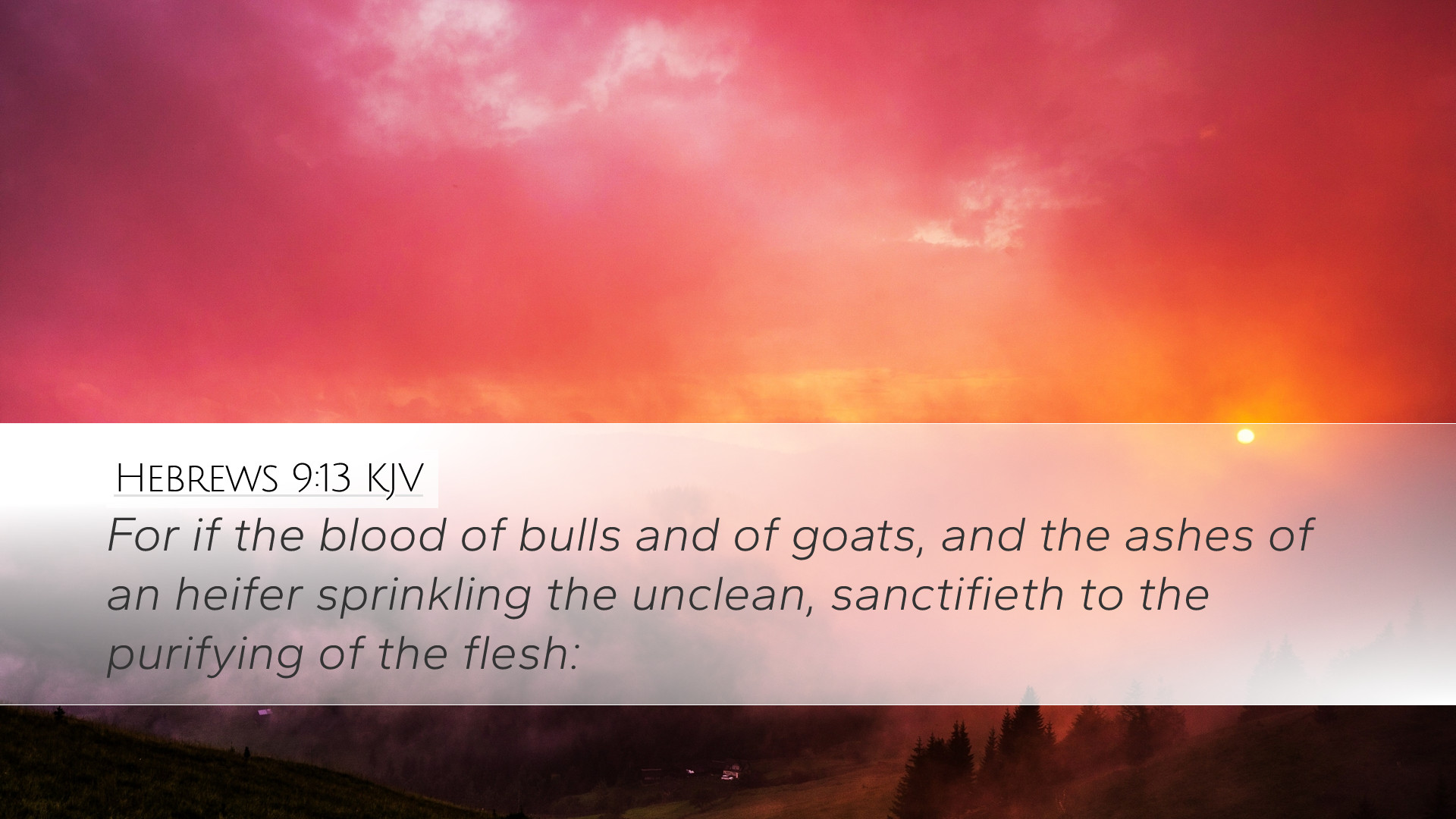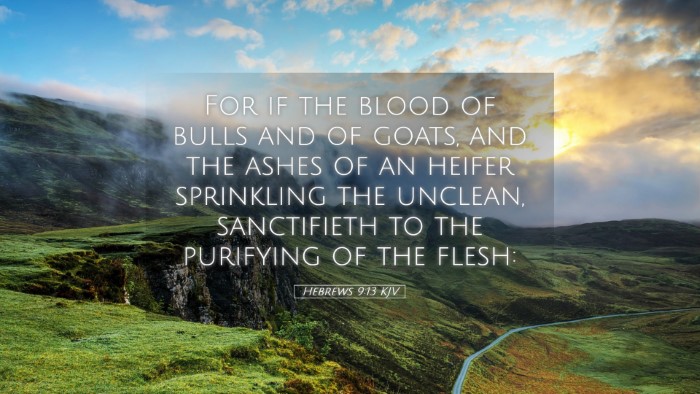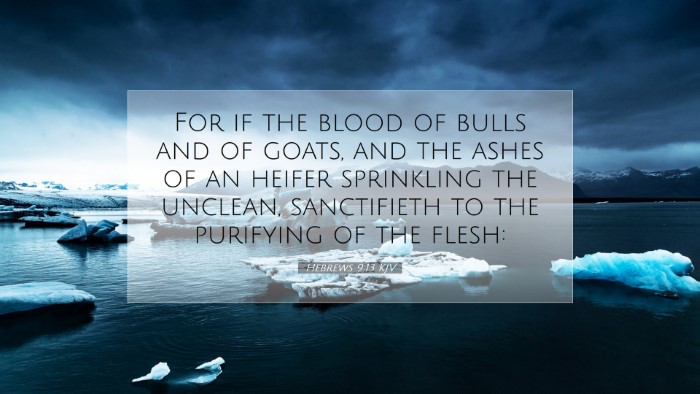Commentary on Hebrews 9:13
Hebrews 9:13 (KJV): "For if the blood of bulls and of goats, and the ashes of an heifer sprinkling the unclean, sanctifieth to the purifying of the flesh."
Introduction
This verse plays a critical role in the overarching theme of the epistle to the Hebrews, which contrasts the old covenant, mediated through the Levitical priesthood, with the new covenant established by Christ. The author emphasizes that the sacrificial system, although significant, was ultimately insufficient for true spiritual cleansing.
Understanding the Sacrifices
-
Animal Sacrifices: Matthew Henry notes that the mention of "the blood of bulls and goats" represents the ceremonial law and the sacrifices required under the Mosaic covenant. These sacrifices were meant to atone for sin temporarily but could not effectuate eternal redemption.
-
Symbolism of Ashes: Albert Barnes explains that the "ashes of an heifer" refer to the ritual of the red heifer, whose ashes were used to purify those who had come into contact with the dead, illustrating the ceremonial purity required in approaching God. This highlights the connection between physical cleansing and spiritual readiness.
The Purpose of Purification
The purpose of these sacrifices was to signify the serious nature of sin and its repercussions. Adam Clarke emphasizes the cleansing aspect of these sacrifices, indicating that while they purify the flesh, they do not provide an ultimate solution for the soul’s state in light of God’s holiness.
Limitations of the Old Covenant
-
Temporary Atonement: All three commentators reflect on the inadequacy of these sacrifices for lasting redemption. Matthew Henry notes that the blood of these animals could cover sin but could not remove it, leading to continual sacrifices.
-
Typology of Christ: Albert Barnes asserts that the Levitical sacrifices were a shadow pointing to the ultimate sacrifice of Christ. They served merely as a precursor to the ultimate act of redemption that would fulfill all the requirements of God's law.
-
Need for a Better Covenant: Adam Clarke elaborates on the need for a "better covenant" foretold in the previous chapters of Hebrews. The limitations of the animal sacrifices highlight humanity's need for a perfect sacrifice.
Spiritual Implications
The spiritual implications of this verse are profound. The author of Hebrews intends to show that while the old sacrifices had their importance, they were inadequate for complete purification from sin. Professors and students of theology should understand that this verse emphasizes the transitional phase from the earthly sacrificial system to the heavenly reality through Christ.
Conclusion
In conclusion, Hebrews 9:13 succinctly encapsulates the argument of the necessity of Christ’s atoning sacrifice as the fulfillment of the law. All sacrificial acts of the old covenant were intended to lead believers to a greater understanding of redemption through Christ. For pastors and theologians, this verse serves both as a challenge to articulate the significance of Christ’s sacrifice to their congregations and an encouragement to reflect on the amazing grace offered through the new covenant.


